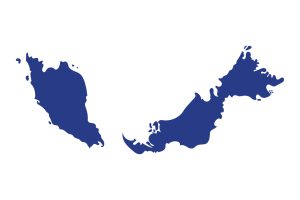In this brief essay, I will outline the key demands of Sabah and Sarawak concerning the fulfilment of the Malaysia Agreement 1963 (MA63). While many Malaysians are familiar with the term MA63, the specific historical grievances tied to it are less widely understood. Most people are aware that the Borneo states seek greater autonomy and control over their oil and gas resources, but the broader scope of their demands is often overlooked.
Due to limited space, I will clearly explain these demands and propose ways to address them. If these issues are resolved, it could lead to a significant shift in the relationship between Peninsular Malaysia and the Borneo states, ultimately realising the original vision of the federation as conceived in 1963.
Proposed solutions
These six key areas are:
1. Ownership of continental shelf
The continental shelf off the coast of the Borneo states has long been a point of contention. These regions are abundant in gas and oil, and the peoples of Borneo feel that they have never benefited from the billions taken out since the 1970s. Under the Petronas Development Act (PDA 1974), the federal government owns all oil and gas resources. The position of both states is that the continental shelf does not belong to the federal government. The boundaries of Sarawak were extended by the Sarawak (Alteration of Boundaries) Order 1954 to include the area of the continental shelf, being the seabed and its subsoil, which lie beneath the high seas contiguous to the territorial waters of Sarawak. The continental seabed therefore falls within the definition of ‘state land’ and is thus part of the territory of Sarawak. Article 1(3) of the Federal Constitution states that the territory of Sarawak is the territory it comprised prior to Malaysia Day. In plain English, all valid Sarawak laws prior to the formation of the federation became law after 16 September 1963. Moreover, the Continental Shelf Act 1966 no longer applies, as it was only extended to the state via the Emergency (Essential Powers) Ordinance No.10, 1969, which was repealed in 2011.
2. Representation in Parliament
Another critical issue is parliamentary representation, particularly the restoration of one-third seat allocation for the Borneo states. In 1963, Malaya held 104 seats in the 159-member federal parliament, while Sarawak, Sabah, and Singapore collectively had 55 seats, accounting for 34.6 percent. This distribution was deliberate, with the three ‘S’ territories (Sabah, Sarawak, and Singapore) intentionally given slightly more than one-third of the seats as a safeguard. This ensured that Malaya could not unilaterally amend the Malaysian Constitution without the agreement of these territories, given Malaya’s dominant influence.
However, when Singapore exited the federation in 1965, its 15 parliamentary seats were not reallocated to Sabah and Sarawak. As a result, the Borneo states were left with only a quarter of the seats in parliament, allowing Malaya to amend the constitution without their input. Sabah and Sarawak have since formally proposed to the federal Cabinet that their parliamentary seats be increased to 35 percent. This change would require a constitutional amendment and would not impact the upcoming general election. If implemented, this adjustment would significantly alter the dynamics of federal-Borneo relations, requiring Putrajaya to consult Kuching and Kota Kinabalu on all future constitutional matters.
3. Devolution of Healthcare and Education
It is logical for Sabah and Sarawak to assume greater control in these areas, given their vast size and unique socio-political contexts. Kota Kinabalu and Kuching are better positioned to understand and address the specific needs of their regions. Currently, key decisions are centralised in Putrajaya, which often results in delays and, at times, a lack of attention to the interior regions of Sabah and Sarawak. An often-cited example is the physical state of schools in the interiors of Borneo. Requests for repairs often take months because they must first be approved by Putrajaya and even longer once the contractors are approved. It’s the same with medical personnel in Sabah and Sarawak. Everything has to be approved by Putrajaya.
A practical solution could involve a phased approach to devolving powers. For instance, Sarawak could initially take on more basic responsibilities, such as managing the posting of medical personnel to Sabah and Sarawak at the state level. More complex issues, like specialist healthcare, could be addressed in later stages. School repairs and school-related projects up to RM5 million should be approved at the state level. However, a significant challenge lies in financial matters, particularly with the education budget, which is substantial. Resolving this will require extensive negotiations between the state and federal governments.
4. Cultural and religious autonomy
Both states, with their diverse cultures and significant non-Muslim populations, seek protections for their cultural and religious practices, which they feel have been increasingly centralised or influenced by policies from Peninsular Malaysia. One way to resolve this issue is to simply provide bulk funding for cultural matters directly to Kota Kinabalu and Kuching and allow them to decide how to spend the money.
Religious autonomy is much more difficult and will require delicate handling. This issue may end up in the ‘too-hard’ basket for now. The first step would be for JAKIM to be disengaged from both states for the time being.
5. Sabah’s revenue
There is a constitutional requirement to refund Sabah 40 per cent of the net revenue collected from the state. This issue has been ongoing for the past six years because both the state and federal governments have not been able to agree on the formula for calculating the 40 percent. Another area of disagreement is the arrears accumulated since the 1970s, known as the ‘lost years’. One possible solution is arbitration by appointing a team of independent experts to come up with a formula that is binding on both parties.
6. Make MA63 safeguards Basic Structure Doctrine (BSD) for the Malaysian Constitution
The Basic Structure Doctrine (BSD) is a legal principle that states that a constitution’s fundamental features cannot be changed by its legislature. These features may include the rule of law, judicial independence, and the supremacy of the constitution. Given that MA63 is a founding document in the creation of the federation, the safeguards in MA63 should perhaps form part of the Malaysian Constitution BSD. The doctrine is a common law principle that is recognised in several Commonwealth countries, including India, Bangladesh, Pakistan, and Uganda. It prevents the legislature from changing the constitution’s fundamental features through constitutional amendments.

Author
Professor James Chin





